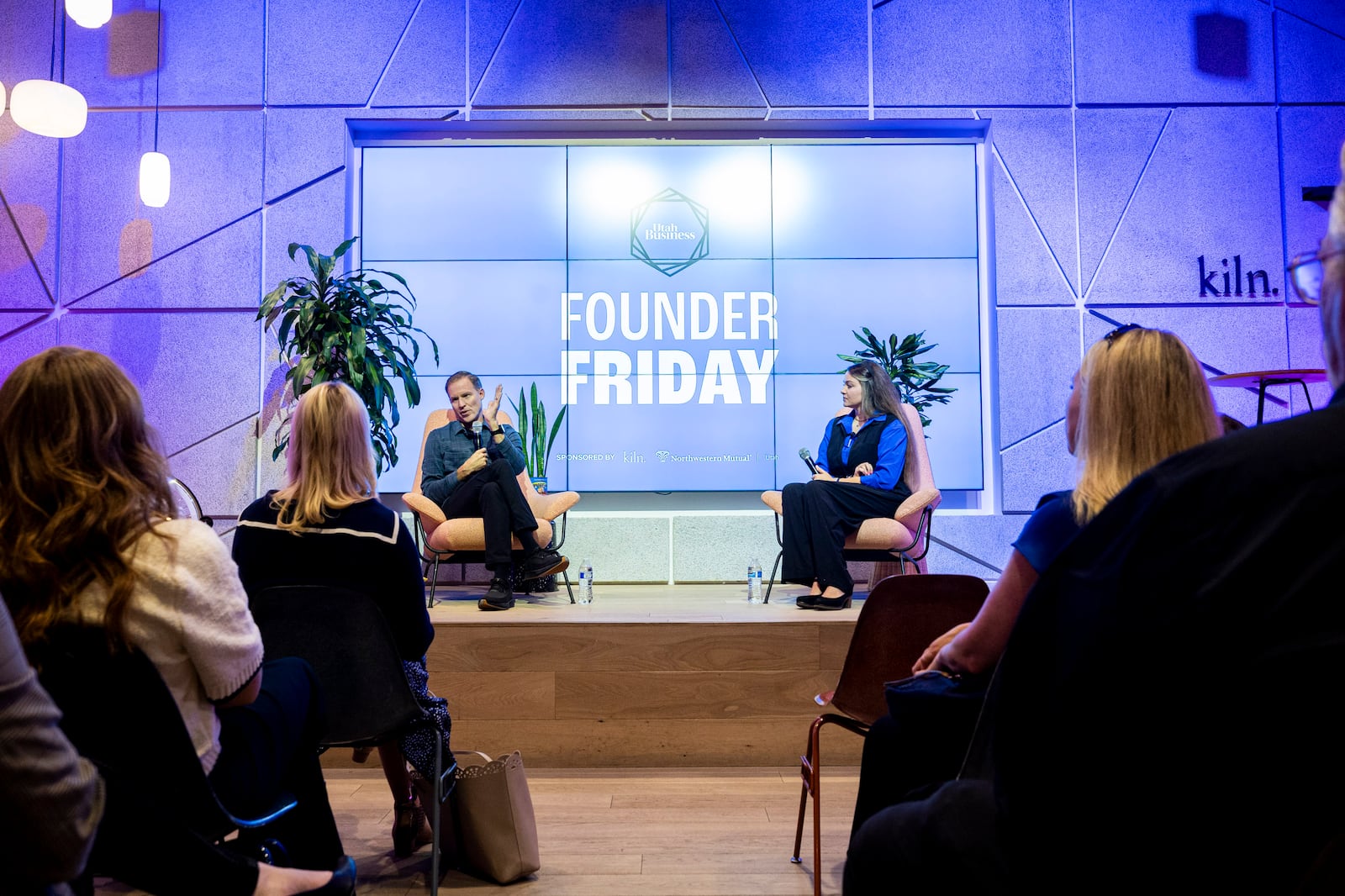Once a month, Utah Business hosts Founder Friday, a free event that showcases the wisdom of Utah-based founders. In July, Kiln hosted a conversation between Utah Business Assistant Editor Kenzie Koehle and Pattern co-founder Dave Wright. This event was sponsored by Kiln and Northwestern Mutual. Here are a few takeaways from the conversation.
1. Build a talent-first organization.
With 2,000 employees across 22 global offices, Wright believes Pattern’s greatest competitive advantage is its hiring approach.
Early-stage startups face a significant disadvantage in hiring compared to tech giants like Amazon and Google, which have sophisticated vetting processes and strong brand appeal. To counter this disadvantage, Pattern developed a rigorous evaluation process: Every candidate receives a 20-30 page packet review, extensive reference checks and analysis. Wright reviews every candidate personally, looking for indicators that they ranked in the top 14.5 percent of their peer group in previous roles.
When potential hires are subject to being lost to counteroffers from their current employers or competitors, Wright advises, “Open the wallet, because it means you’re probably on the right track.”
In Wright’s view, a focus on talent is a crucial business strategy.
“I think I could switch and go sell snow cones, and we could probably crush that with the team we have,” he says.
2. Lead top performers with a light touch.
Wright’s management philosophy centers on giving high-performers autonomy rather than micromanagement. “If they’re really good, they don’t really want you to tell them what to do,” he says. “You don’t need to. And if you do, they just want to quit.”
This approach has contributed to Pattern’s impressive retention metrics. While competitors like Amazon have an average retention of around 24 months, Pattern boasts 53 months — a significantly higher rate than its employees’ previous average tenure of 36.5 months at other companies.

3. Persist in building client relationships.
Pattern’s client acquisition strategy in the early days was refreshingly straightforward: persistent outreach. “I just said, ‘I’m going to make 10 phone calls every day,’” Wright says, referencing a “paper clip” technique where he would move clips from one jar to another to track his daily outreach goals.
Pattern’s two largest clients today were secured through direct outreach by co-founder Melanie Alder, who later married Wright five years after they started the business together. “Mel called them and grinded that out,” Wright acknowledges, highlighting how determination and persistence often outweigh sophisticated sales strategies in the early stages of building a business.
This emphasis on relationships continues today, with Pattern maintaining a 95 percent customer retention rate through what Wright calls “partner obsession” — a philosophy borrowed from Amazon’s “customer obsession,” but with more of a focus on brand partners.
4. Ask for help and share your knowledge.
Wright concluded with a fishing analogy that encapsulates his approach to entrepreneurship. For years, he and his children would approach successful fishermen at the lake and ask for their techniques. “The first guy we asked told us about it for 20 minutes, and he gave us the lures we needed,” Wright recalls.
Eventually, they became expert fishermen themselves using this accumulated knowledge. The surprising part? “Not a single person ever asked us how to catch the fish,” Wright says, despite their willingness to share.
He sees this as a lesson for entrepreneurs: Successful business leaders are often more willing to help than you might expect. Ask, learn, iterate — then, be generous with others who are beginning their journeys.


